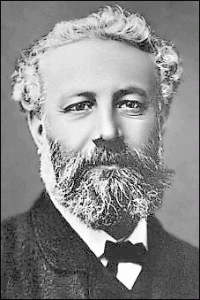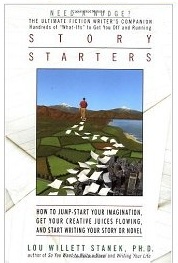 Please forgive me for not having written much sooner. Of course, you may not be that concerned about my tardiness since you’ve been dead now for 106 years.
Please forgive me for not having written much sooner. Of course, you may not be that concerned about my tardiness since you’ve been dead now for 106 years.
There are a great number of things to thank you for, even though belatedly. I read several of your books in my teenage years. It was Twenty Thousand Leagues Under the Sea that inspired me to enter my country’s submarine service. In fact, two of the book’s chapters, ‘Everything by Electricity’ and ‘Some Figures’ spurred me to major in Naval Architecture.
I am also grateful you motivated me to write fiction. Your novels explored the relationship between man and his latest technology, took readers to exotic and distant locales, contrasted different cultures, and did all those things with scientific accuracy, style, and a touch of humor. My own stories may be faint imitations, but thank you for confidently blazing the trail on which I now stumble in your footsteps.
You probably receive many letters (or other expressions of gratitude) from geologists inspired by A Journey to the Center of the Earth, astronauts stimulated by From the Earth to the Moon, travelers moved by Around the World in Eighty Days, and science fiction writers motivated by the entire body of your work. Just add my letter to the stack.
To give you a notion of the depth of admiration felt for you I’ll relate a single incident. About fifteen years ago I attended a meeting of the North American Jules Verne Society —yes, you have a fan club! The formal meeting had ended and the membership had retired to one member’s house to continue our discussions sustained by beer and wine. This fellow’s neighbor came over and listened to our conversations with apparent interest for about five minutes. He then raised his voice and asked the assembled fans, “You do know Jules Verne is dead, don’t you?” The room fell silent, and remained so for some time. In a sense, to many of us, you never died.
On behalf of the English-speaking world, I must apologize for the abysmal early translations of your novels into my language, though I’m not responsible. It is a measure of your genius that even these literary hatchet jobs couldn’t prevent your works from being enjoyed by millions, even billions. I promise to do my part to encourage English speakers to read only recent, more faithful, translations. Or better yet, to read your novels in the original French.
On the subject of apologies, I ask your forgiveness for the pathetic renderings of your works in cinematic formats. I trust you’ll make some allowance for this, knowing that modern movie scriptwriters and directors are aiming for a different audience than you were.
More English translations of your lesser-known novels appear all the time, and I read these as fast as they appear. These include: The Floating Island, An Antarctic Mystery, The Mighty Orinoco, Invasion of the Sea, The Meteor Hunt, Adventures of the Rat Family, The Humbug: the American Way of Life, and Paris in the Twentieth Century. Even now the bookshelf on which I keep your books groans and sags. No matter; I shall make a longer, stronger shelf!
Please take my story “The Steam Elephant” which appears in Issue 5 of Steampunk Tales, the sequel to your novels The Demon of Cawnpore and Tigers and Traitors, in the spirit of fond tribute intended. What great fun it was to bring your characters together again, but in Africa rather than India.
In gratitude eternal, I raise my wine glass to toast you, my hero and my inspiration.
Thank you,
Steven R. Southard
aka
Poseidon’s Scribe












